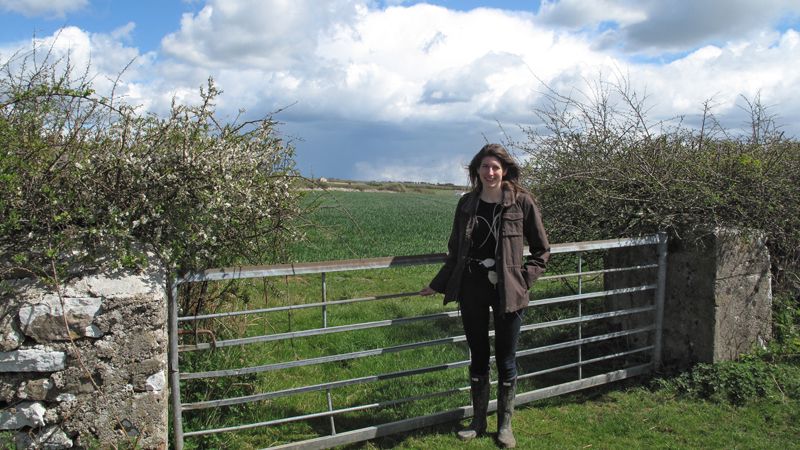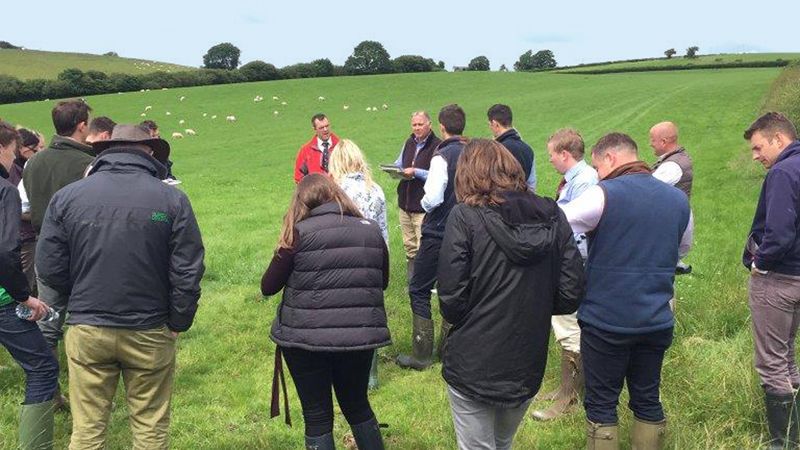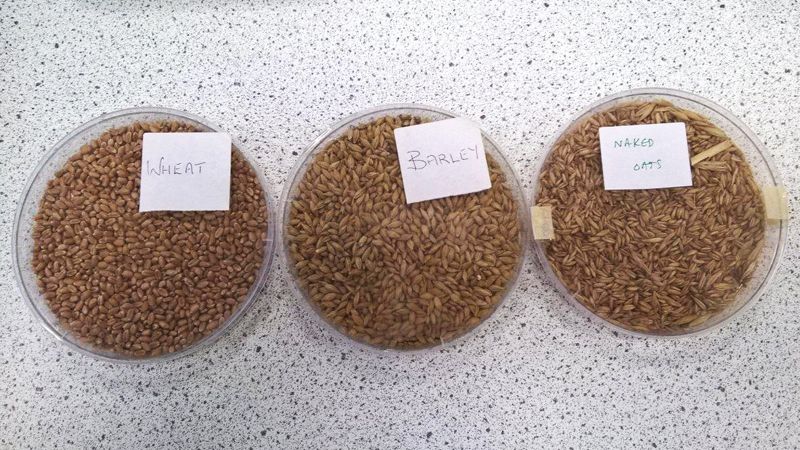Candidates (who will already be ‘Probationer’ members of the CAAV) sit the exam only following attendance at the equivalent of four full day CAAV Tutorials. At least two years’ relevant work experience is also recommended. In my case, over consecutive summers I attended the two-day Aberystwyth Tutorial focusing on the practical element of the exam, plus a one-day Tutorial Workshop in Cirencester which focused on the written element of the exam. Cooke & Arkwright in fact organises and runs the Aberystwyth Tutorial on behalf of the CAAV, and it is a very worthwhile two day course.
The two-day exam involves written, oral and practical elements, with the latter taking place on site at a working farm with the questions replicating real life situations as closely as possible. Candidates must gain a mark of 60% or more in each of the three elements in order to pass the exam.
The practical element of my own assessment began with a rendezvous at the Three Counties Showground in Malvern, which was our exam centre. I joined other apprehensive candidates on site, where we were split into groups of four or five, each with an invigilator. We were then driven to a previously undisclosed farm location, some fifteen minutes from the exam centre. We arrived at a mixed arable and livestock farm to the south of Malvern and the examination papers were duly handed out. We were dispatched in different directions around the farm to answer the various questions set by the examiners.
CAAV examination questions have a wide scope: you may be asked to consider the implications of converting a farm building; prepare Heads of Claim for wayleaves or compulsory purchase schemes; provide a valuation of livestock and deadstock; or to prepare Heads of Terms for hypothetical new tenants, be they commercial or agricultural.
The responses need to demonstrate your competence, show that you understand the technicalities and have properly observed your site surroundings. For example: did you notice the expensive Estate fencing alongside the farm track, or the poor condition of the access to the barn you are valuing? Examiners expect you to see and note it all and award marks accordingly. Numerous questions also focus upon current affairs, so you need to have read the Farmer’s Weekly religiously in the run up to the exam!
With the winter wind whipping around you as you juggle exam papers, pens, calculator and clipboard, it certainly creates a unique exam atmosphere, compounded by the fact you are expected to write all your notes and answers in a hardback valuation book. The glass of wine in my warm hotel at the end of the day was certainly most welcome!
As if the practical exam is not enough, on the following day candidates must sit several hours of written exams. This is followed by an oral interview with at least two examiners where you are grilled for nearly half an hour on things you have seen on the farm the previous day, together with a series of quick-fire questions.
The CAAV exam is a distinct challenge and finding out you’ve qualified brings a great sense of accomplishment. The qualification is bespoke to our industry as a rural surveyor and provides clients with the confidence that you know what you are talking about. It is also incredibly useful preparation for what happens in the real world of agricultural valuation and land agency.
In my daily role, I could be in a corporate office negotiating legal matters one minute, and next I could be out on site negotiating compensation claims with footpaths officers, or valuing land for clients. I enjoy the variety and I’m very glad to have taken the path to CAAV fellowship.
Membership provides valuable network and training opportunities that back up your work. It’s very useful to meet up with other surveyors to share experiences and keep abreast of land related matters. Agricultural Valuers do not simply deal with agriculture. We specialise on the use and management of all kinds of rural property including country houses, equestrian property, smallholdings, sporting rights, rural estates, commercial developments, woodland, quarries and minerals sites, development land, market gardens and leisure property, as well as farms.
For anyone looking for a career that’s interesting and challenging with daily variety, I’d place a good value on this field!
Click here for more information about the type of work CAAV members advise upon.




